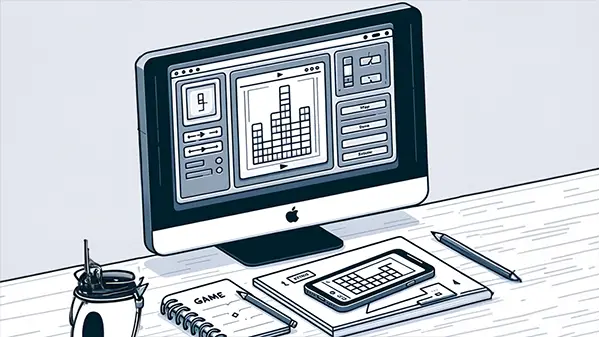
In the ever-evolving digital landscape, mobile games have carved out a significant niche, captivating audiences worldwide with their accessibility and engaging content. This surge in mobile gaming popularity presents a unique opportunity for aspiring developers to enter a realm filled with creativity and technological innovation. This comprehensive guide aims to equip beginners with the essential knowledge and tools needed to embark on their journey into mobile game development. We will delve into the foundational aspects of creating a simple mobile game, ensuring the content is digestible and the language straightforward, catering specifically to those new to the field.
Table of Contents
Understanding the Basics
The journey of mobile game development begins with a fundamental understanding of the gaming landscape. Mobile games come in various forms, ranging from simple puzzles and arcade games to complex RPGs and strategy games. For a beginner, it is vital to comprehend the diversity of mobile gaming genres, as this will influence your creative decisions. To start, immerse yourself in playing different types of mobile games. This not only gives you a feel of what’s already out there but also helps in understanding user experience from a gamer’s perspective. The key is to start with a simple, clear idea. Think about what makes certain games appealing and how you can incorporate those elements into your own game. It’s also important to be realistic about your capabilities and resources; complex games require more time, advanced skills, and possibly a team.
Choosing the Right Tools
The selection of development tools is a critical step in mobile game creation. For novices, choosing a user-friendly yet powerful game engine is crucial. Platforms like Unity and Unreal Engine are popular choices due to their comprehensive functionalities and support for cross-platform development. Unity, for example, is known for its intuitive interface and a vast library of assets and tutorials, making it an excellent choice for beginners. Additionally, these engines have large communities, providing ample resources and forums where you can seek help and advice. Other considerations include choosing a programming language – commonly C# for Unity and C++ for Unreal Engine – and familiarizing yourself with the basics of these languages.
Learning the Basics of Game Design
The essence of any game lies in its design. This step is all about translating your game idea into a playable format. It involves planning out the storyline, mechanics, level design, and the overall aesthetic. As a beginner, it’s advisable to start small. Focus on creating a clear, engaging game loop – the core cycle of actions that players will repeat throughout the game. Sketch out your ideas, create basic storyboards, and think about the player’s journey through the game. You should also consider the user interface and how players will interact with your game. Remember, simplicity is key. Overly complicated designs can become overwhelming and are more prone to issues.
Developing Your Game
With a solid game design in place, you move to the development phase. This is where your game starts to come to life. For beginners, this often means learning to code. While this can seem daunting, many game engines offer user-friendly programming environments and even visual scripting options that don’t require traditional coding. Start with basic functionalities and gradually build up the complexity of your game. Regularly test your game to see how your code translates into actual gameplay. This phase can be time-consuming and sometimes frustrating, but it is also where you learn the most. Be patient and persistent, and don’t hesitate to use online resources, tutorials, and community forums for assistance.
Testing and Debugging
Testing and debugging are integral to the game development process. They ensure that your game is playable, enjoyable, and free of bugs. Testing should be done continuously throughout the development process. It involves checking not only for bugs but also for gameplay balance and user experience. Debugging – the process of fixing the bugs – can be challenging but is crucial for the game’s success. Remember, no game is perfect at first; refining a game based on feedback and testing is what makes it great.
Launching Your Game
Publishing your game is the final step in the development process. Once you’re satisfied with your game, it’s time to share it with the world. Platforms like the Apple App Store and Google Play Store are popular choices. Each platform has its own set of guidelines and processes for submitting a game, so be sure to familiarize yourself with these requirements. Keep in mind that getting your game onto a platform is just the beginning. Marketing your game to reach potential players is also an important aspect of game development.
Games Easy to Create for Beginners
For beginners, starting with simple game concepts is advisable. Card games like Solitaire and Hearts, puzzle games like Tetris, or classics like Snake, are excellent starting points. These games have straightforward mechanics but are still engaging. Developing such games helps you grasp the basics of game design, development, and user interface creation. Additionally, working on simpler games allows you to complete a project relatively quickly, providing a sense of achievement and a foundation to build more complex games in the future.
Conclusion
Embarking on the journey of mobile game development can be both challenging and rewarding. It’s a process that requires patience, creativity, and a willingness to learn and adapt. As a beginner, starting with simple concepts and gradually moving to more complex ones is key. Remember, every successful game developer started somewhere, and with dedication and passion, you too can create games that captivate and entertain. Happy developing!

